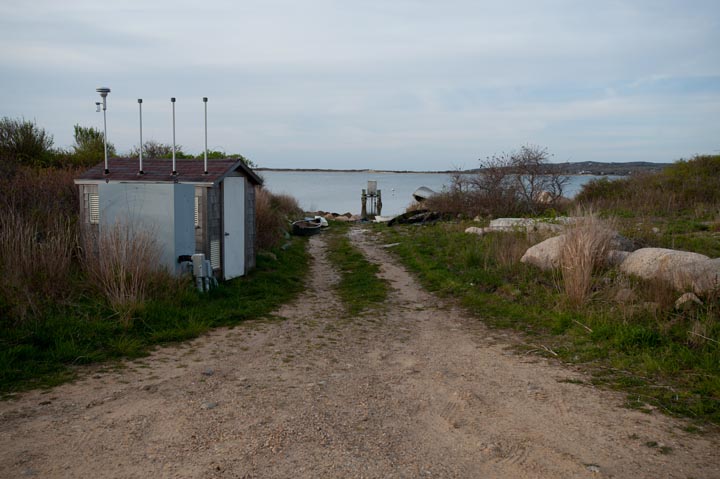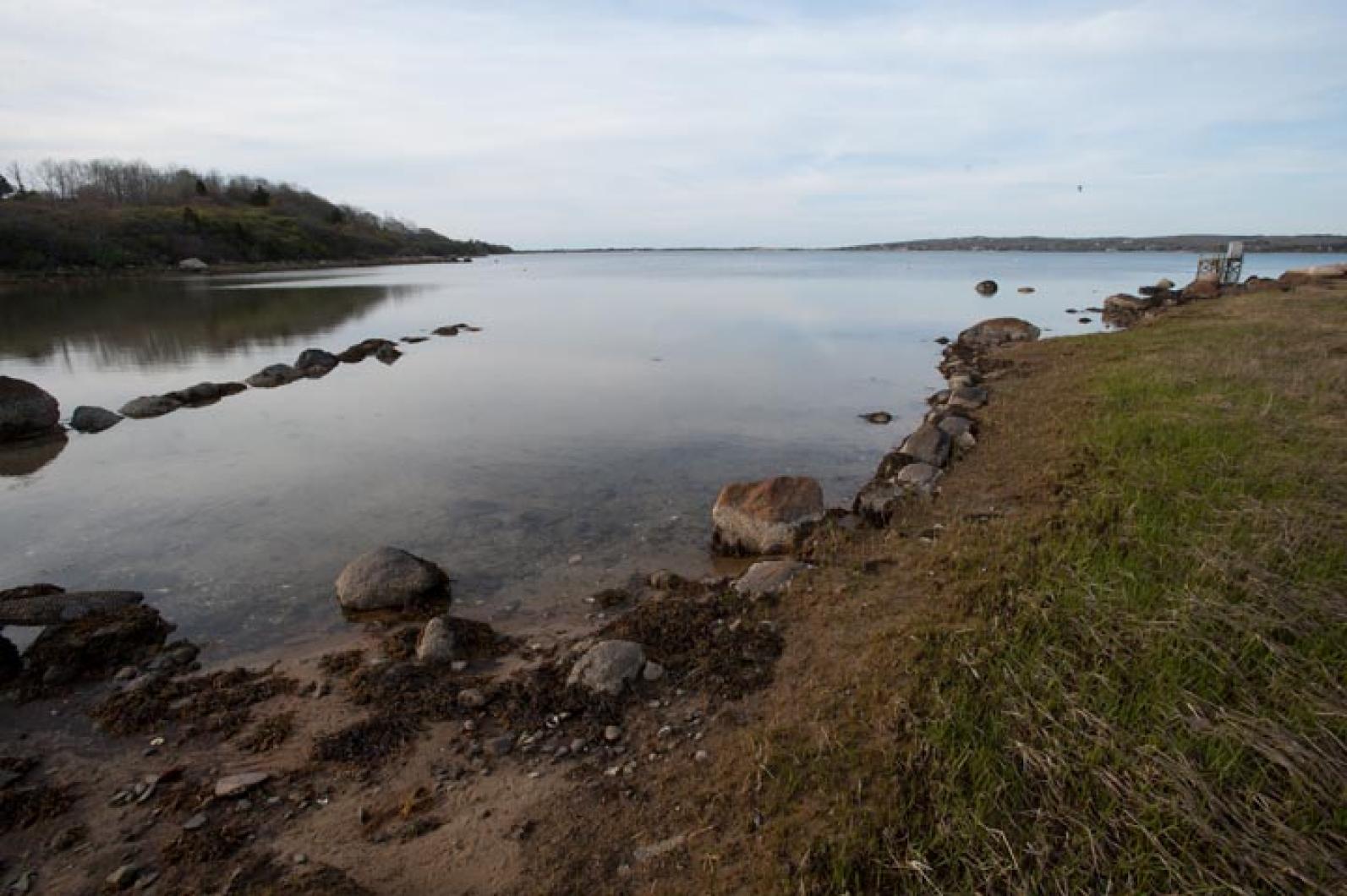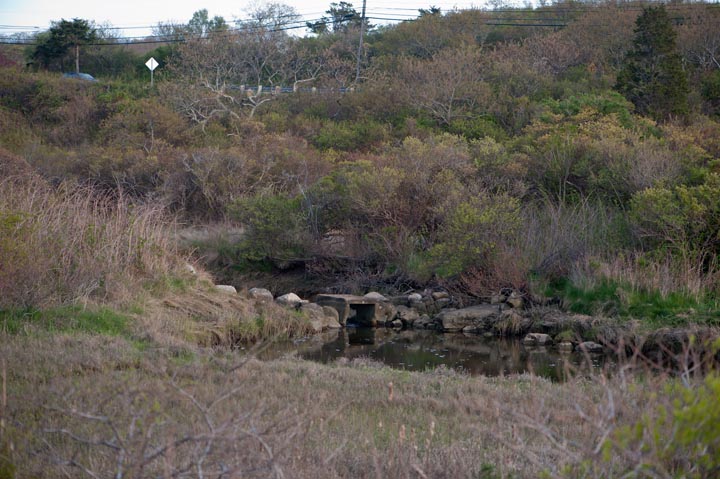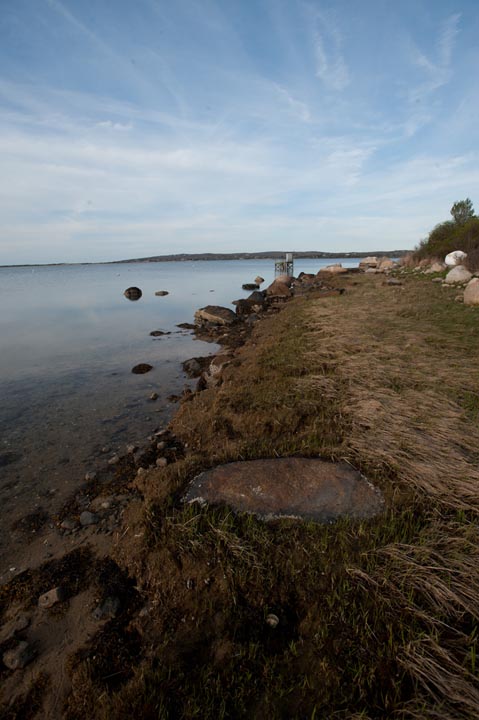Reports that the Wampanoag Tribe of Gay Head (Aquinnah) wants to open a bingo hall in Aquinnah came as a surprise to members of the Island community this week. But documents filed with the federal gaming commission show plans to conduct gaming on the Vineyard have been in the works since at least November.
Five months before they approached Gov. Deval Patrick to negotiate for a casino license on the Massachusetts mainland, leaders of the Aquinnah tribe were actively seeking Class I and Class II gaming ordinances from the National Indian Gaming Commission for tribal lands on the Vineyard.
The gaming commission approved the ordinances in February and has since received an amended application for a specific location on the Vineyard, a spokesman for the gaming commission told the Gazette this week. Gaming commission spokesman Paxton Myers could not say when the amended application might be considered, adding it was “fairly recent” and still working its way through the commission’s internal review process.
If the ordinance application is approved, the tribe then would be required to submit a facility license application to the commission. The commission has 120 days to review it. Mr. Myers said the tribe has not filed such an application.
At a membership meeting held on the Vineyard last weekend, tribal members, acting on an unexpected motion from the floor, voted to allow Class II gambling in the tribal community center located off Black Brook Road in Aquinnah, near tribal headquarters. The vote was 21-10, with seven members abstaining, said Jim McManus, a spokesman for the tribe.
Chairman of the tribe Cheryl Andrews-Maltais said yesterday that plans to locate a casino at the community center in Aquinnah, while still in their infancy, envision a facility “looking no different than somebody’s large-scale summer home.”
“Aesthetically from the outside it probably wouldn’t be much different than it is now,” she said. “It doesn’t matter what it looks like, it’s what’s packaged inside that counts.”
The tribe’s decision to bring bingo and other games to Aquinnah by as early as this summer flies in the face of an opinion issued in late April by the Aquinnah town counsel who advised the town selectmen that the tribe is barred from bringing a gambling facility to Aquinnah under a 1983 land claims settlement agreement that it signed.
The tribe is also continuing to pursue a Class III license to build a casino resort in Southeastern Massachusetts. Under a law passed late last year, the state is moving ahead with plans to issue three casino licenses, one reserved for an Indian tribe through an expedited application process. The tribe has entered into a purchase and sale agreement for 514 acres that straddle Freetown and Lakeville, and this week, the tribe held a series of informational sessions for residents of those towns. Mrs. Andrews-Maltais said schematics of the planned casino will be available at a May 22 meeting in Freetown.
To date, however, Gov. Patrick has refused to negotiate with the Aquinnah Wampanoags, also citing the 1983 settlement act in which he claims the tribe partly waived its right to sovereignty. The Mashpee Wampanoags, who want to build a $500 million casino in Taunton, are in negotiations with the governor for the Indian tribe license allowed by the state.
The 1983 settlement agreement was the subject of a landmark ruling by the state Supreme Judicial Court in 2004, which found that the tribe had partly waived its sovereignty and was bound to follow state and local zoning laws on tribal lands.

Attorney for the tribe and longtime tribal advocate Scott Crowell disputed the interpretations of the tribe’s settlement decision by Governor Patrick and the Aquinnah town counsel, and he sharply criticized the governor’s decision not to negotiate. If the governor continues to refuse to enter into negotiations with the tribe for a compact agreement to operate a Class III facility, Mr. Crowell said, the tribe will go to federal court if necessary to assert its right to build a casino under the Indian Gaming Regulatory Act.
“[They] believe somehow the Aquinnah tribe should be deprived of the economic opportunities made available to the Mashpee tribe,” Mr. Crowell said. “The tribe is resolute in defending its position to participate on all three levels — Class III gaming under state law on the mainland, Class III gaming under [IGRA] on Martha’s Vineyard and Class II gaming on Martha’s Vineyard. If the state thinks the tribe is going to go quietly into the gentle night by hiding under the attorney general’s opinion, that’s not going to happen.”
Congress enacted the Indian Gaming Regulatory Act in 1988 in an effort to establish a common framework for tribes to conduct different types of gaming. The act set up three classes of games, each of which is regulated differently. Class I includes traditional Indian games and social games that offer small prizes. Class II and Class III gaming are largely differentiated by betting methods and the games permitted inside the facilities. Class II casinos are restricted to games of bingo, and various card and table games where players can bet against each other and but not against a dealer or the house. Electronic bingo machines are also permitted; slot machines are not. Games under Class III facilities include black jack, slot machines, and other high stakes game normally associated with large resort-style casinos.
As technology has advanced, however, tribes with Class II licenses have introduced electronic bingo games that bear a close resemblance to slot machines, blurring the distinction between Class II and Class III gaming. Because Class II gaming is not regulated by state law, some states have begun to pressure the National Indian Gaming Commission to impose tougher restrictions on Class II games.
The tribe announced this week that it had selected KMD Consulting of California as a partner to develop the resort casino in Southeastern Massachusetts. KMD, run by principal Kevin M. Dwyer, is currently working with several tribes to develop gaming facilities. Mr. Dwyer, Mr. Crowell and others attended the tribal membership meeting in Aquinnah over the weekend.
Mrs. Andrews-Maltais said yesterday the community center casino would be a stepping stone for future endeavors.
“We’re using that building so we can demonstrate we have the abilities to hire professionals, help us develop our business plans and be in the black,” she said. “Then we can give back the community center, and give it back better, and see what our options are at that point.”






Comments
Comment policy »